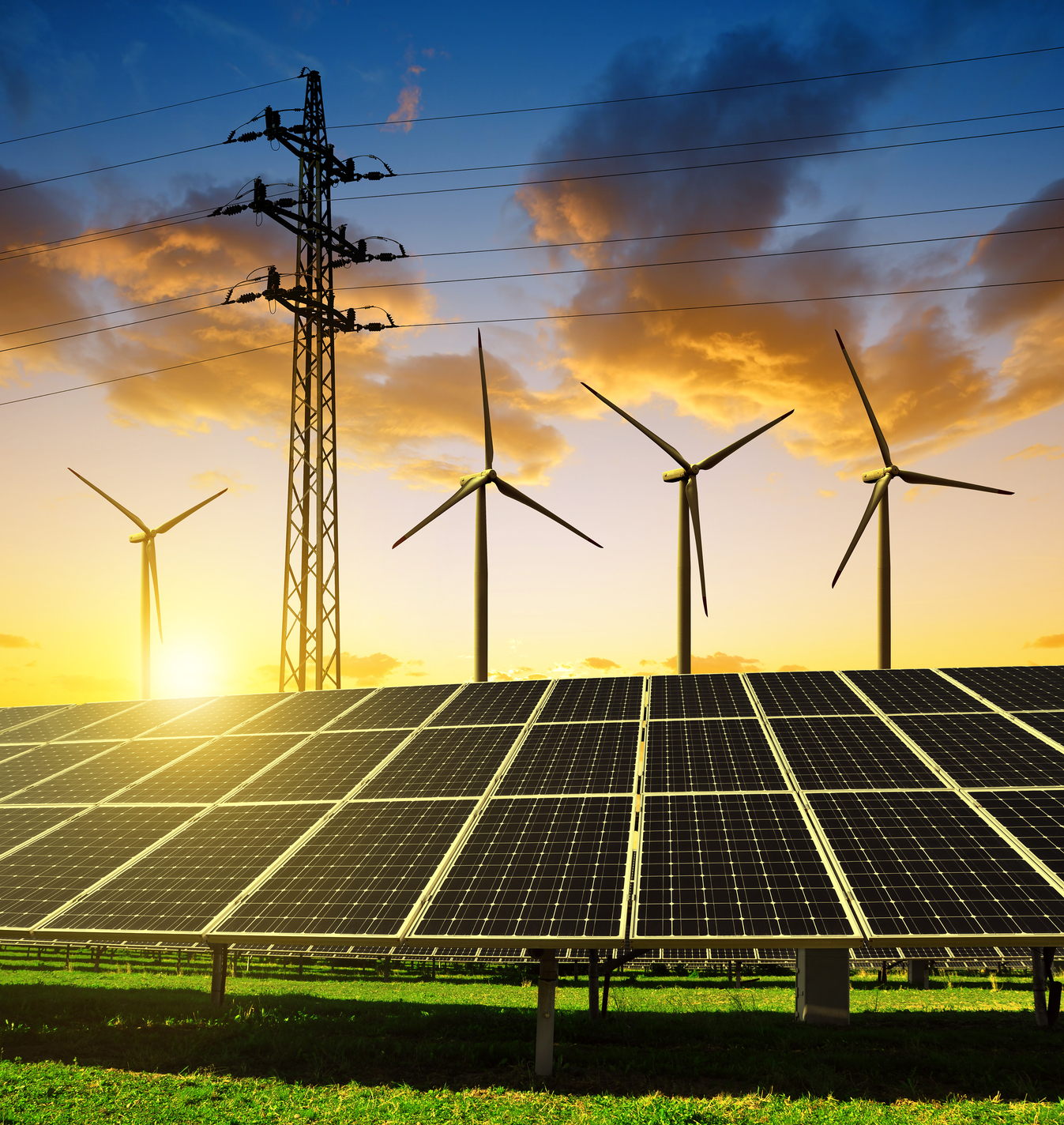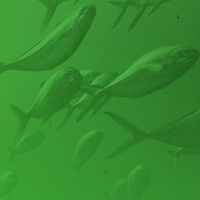-
Grants
39
-
Total Awarded
$53,684,370
-
Years
1986 - 2021
-
Categories
Grants
Environmental Defense Fund (EDF) is a global nonprofit that aims to preserve the natural systems on which all life depends. Since 2009, EDF has worked closely with Indian partners, including government officials, businesses, academia, development and environmental NGOs, and others in civil society to focus on actions that advance improved air quality, climate-smart agricultural practices, and zero-carbon energy pathways. This award supports EDF to use low-cost sensors in two Indian cities to increase the availability and inclusiveness of air quality data in India. It assists EDF to raise public awareness on ambient air quality, effectively leveraging the learnings from the use of low-cost sensors. In addition, the award enables EDF to contribute to the establishment of a Center of Excellence, which will provide training and capacity building support to institutions and experts on air quality.
The Environmental Defense Fund (EDF) is guided by science and economics to identify practical and lasting solutions to the most serious environmental problems. The first phase of this project built a comprehensive federal framework for methane reduction. Although under relentless challenge by the Trump Administration, the momentum in key states is strong and EDF has laid a strong foundation to continue to make progress despite the dramatic political shift federally. This award supports the second phase of the project, which is focused on driving progress toward a reduction in U.S. oil and gas methane emissions of 45 percent below 2012 levels by 2025.
Environmental Defense Fund (EDF) works to create solutions that let nature and people prosper. EDF’s Oceans program operates in Cuba to end overfishing, rebuild stocks, improve economic conditions of fisher communities, and protect biologically diverse habitats. Finfish fisheries are critical for Cuba’s food security, and are essential to the health of coastal systems, but are notoriously challenging to manage in the tropics due to the variety of species present that are targeted by fishers. These fisheries are declining, and multi-species management is needed to achieve the long-term sustainability that will support food production and jobs in many coastal communities. To address this problem, the Cuban Ministry of the Food Industry (MINAL) and EDF are coordinating a new three year project, with this award supporting EDF’s participation. Using a multi-species management approach called ‘fish baskets’, this collaboration supports the implementation of Cuba’s recently adopted national fisheries law by bringing institutions and stakeholders together to develop management plans for finfish fisheries to put Cuba’s fisheries on the path to recovery and sustainability.
The mission of the Environmental Defense Fund (EDF) is to preserve the natural systems on which all life depends. Guided by science and economics, EDF finds practical and lasting solutions to the most serious environmental problems that span the biosphere: climate, oceans, ecosystems, and health. This project is building a record of methane emissions based on the best available science, which bolsters legal challenges to federal rollbacks and lays the groundwork to advance methane regulation with a future administration. It is also creating pressure on companies to employ responsible practices and it reinforces efforts to adopt strong methane rules in New Mexico.
The Environmental Defense Fund (EDF) applies science and economics to identify practical solutions to some of the most serious environmental problems. The is one of several foreign organizations working with the Chinese government on refining and implementing the nation’s carbon emissions trading platform. Initially, the market will only include emissions from the power sector, which represent approximately one third of the country’s total carbon emissions and would make it the world’s largest carbon market. China plans over the next several years, based on its experiences with the power sector, to expand the national carbon emissions trading system to cover more areas of its economy. With this award, EDF is providing technical training and support for key power sector stakeholders on testing and assessing a carbon emissions trading platform.
The Environmental Defense Fund (EDF) is guided by science and economics to identify practical and lasting solutions to the most serious environmental problems. This award supports EDF and Government of India’s National Environmental Engineering Research Institute (NEERI) to develop a comprehensive knowledge repository on air pollution studies in India. The repository fills a critical information gap for multiple actors engaged in achieving the goal of ambient air quality in India. It builds local capacity to gather, interpret and disseminate data that will inform policy makers and practitioners as they take action to improve air quality.
The Environmental Defense Fund (EDF) is guided by science and economics to identify practical and lasting solutions to the most serious environmental problems. In partnership with The Nature Conservancy, EDF is embarking on a concerted effort over the next two federal election cycles to engage a broad cross-section of voters to forge the necessary coalitions and political base for durable action on climate policy by state legislatures and Congress. The Foundation’s award ensures that EDF can engage fully in the partnership in order to make action on climate change a central, rather than peripheral, political issue for targeted constituencies. Critical to U.S. leadership on addressing climate change and its role in ensuring that developing countries, particularly China and India, meet their 2025 carbon emissions reduction targets, is, among other things, a robust and well-informed political debate across the state and federal governments about the dangers climate change poses and the ways to limit its negative impacts.
Environmental Defense Fund (EDF) works to preserve the natural systems on which all life depends by focusing on the most critical environmental problems. Their Oceans Program works to restore fisheries, protect critical habitat, and improve markets for sustainable seafood. EDF launched its Indonesia country program in 2013, encouraging a promising partnership with Conservation International (CI) in the Birds Head Seascape. With a strong marine protected area network in place in the seascape, the communities that are responsible for stewarding their coastal resources now need to develop and implement a fisheries management plan that will ensure they can fish sustainably in to the future. This one-year award allows EDF to combine its expertise on rights-based fisheries management with CI’s community partnerships in the seascape, to begin developing an integrated fisheries management plan for Kaimana.
The Environmental Defense Fund (EDF) is guided by science and economics to identify practical and lasting solutions to the most serious environmental problems. The first phase of this project built a comprehensive federal framework for methane reduction. Although now challenged by the Trump Administration, the momentum in key states is strong and EDF has laid a strong foundation to continue to make progress despite the dramatic political shift federally. The second phase of the project is driving progress toward a reduction in U.S. oil and gas methane emissions 45 percent below 2012 levels by 2025. Reductions at this scale are producing the same 20-year climate benefit as closing 89 coal-fired power plants.
The Environmental Defense Fund (EDF) is guided by science and economics to identify practical and lasting solutions to the most serious environmental problems. EDF is developing a strategic blueprint for promoting carbon pricing globally. At the core of the blueprint is a Carbon Pricing Hub, created in close partnership with the International Emission Trading Association, which convenes and supports bottom-up stakeholder coalitions to advocate for well-designed market-based climate policies. The Hub engages and empowers business and civil society champions on the ground.
Environmental Defense Fund (EDF) works to create solutions that let nature and people prosper. Their Oceans program operates in Cuba to end overfishing, rebuild stocks, improve economic conditions of fisher communities, and protect biologically diverse habitats. This three-year grant allows EDF to build on the momentum in Cuba to expand community-based fisheries approaches. The project has four objectives: 1) assess the challenges facing Cuba’s fisheries and provide technical support to overcome them, 2) establish proof points to demonstrate how Cuba can solve its fisheries problems, 3) build a policy and management environment that supports scaling solutions, and 4) develop a national learning network to expand awareness and best practices about community-based conservation approaches.
The Environmental Defense Fund is guided by science and economics to identify practical and lasting solutions to the most serious environmental problems. This project is producing an in-depth scoping study on air quality and market-based mechanisms to manage conventional air pollutants in India. The scoping study includes a landscape analysis of players, stakeholders and organizations, as well as the state of atmospheric monitoring, reporting and analysis. The project is designed to identify existing laws, regulations, and responsibilities that are critical to developing an atmospheric pollution-based climate strategy in India. This includes determining how laws are enforced; whether the system of regulations is flexible; whether incentives to sources are properly aligned; and if the right level of resources are allocated to address the air quality problem. The project is also assessing the availability of fundamental data concerning air pollution and energy use, and is identifying existing air quality, energy, and economic modeling.
The Environmental Defense Fund (EDF) is guided by science and economics to identify practical and lasting solutions to the most serious environmental problems. In partnership with The Nature Conservancy, EDF is embarking on a concerted effort over the next two federal election cycles to engage a broad cross-section of voters to forge the necessary coalitions and political base for durable action on climate policy by state legislatures and Congress. The Foundation’s award ensures that the Environmental Defense Fund can engage fully in the partnership in order to make action on climate change a central, rather than peripheral, political issue for targeted constituencies. Critical to U.S. leadership on addressing climate change, and its role in ensuring that developing countries, particularly China and India, meet their 2025 carbon emissions reduction targets, is, among other things, a robust and well-informed political debate across the state and federal governments about the dangers climate change poses and the ways to limit its negative impacts.
Guided by science and economics, the Environmental Defense Fund seeks to identify practical and lasting solutions to environmental problems, such as increasing the efficiency of buildings to lessen carbon emissions. The Environmental Defense Fund leads an effort to standardize how energy efficiency savings are projected and documented to meet basic expectations of major capital sources in search of investment opportunities. The grant ensures that the multifamily housing sector will be included in the standardization effort; with this information, it will be easier for multifamily housing to gain access to capital for energy efficiency improvements.
The Environmental Defense Fund’s Oceans Program works to restore fisheries, protect critical habitat, and improve markets for sustainable seafood. EDF will coordinate a program of work to strengthen interest, understanding, and capacity on rights-based fisheries management in Indonesia’s Bird’s Head Seascape.
The Environmental Defense Fund’s Climate Program works to ensure clean energy is a viable option, advocates for laws that protect the climate, engages the private sector in developing affordable environmental measures, and promotes policies that reduce deforestation. This grant will support EDF’s effort to strengthen the science and regulatory framework for natural gas development in the U.S., in order to minimize methane emissions and human health hazards from production.
The Environmental Defense Fund’s Climate Program works to ensure clean energy is a viable option, advocates for laws that protect the climate, engages the private sector in developing affordable environmental measures, and promotes policies that reduce deforestation. This grant will support EDF’s clean energy program, which seeks to decarbonize the U.S. energy system. The program is anticipated to lock in 8.5-13.3% carbon dioxide emission reductions in the U.S. by 2018, and accelerate innovation, efficiency, and clean energy.
Environmental Defense Fund (EDF) works on conservation of marine and coastal ecosystems, fisheries science and management, ocean energy and other projects in Cuba. The purpose of this grant is to reverse the decline of commercial fish stocks and advance community-based fishery management.
The Environmental Defense Fund is committed to averting catastrophic climate change by increasing energy efficiency and developing new and renewable energy resources. Financing for energy efficiency improvements, particularly for multifamily housing, have not succeeded in attracting capital at a large enough scale, nor outside certain markets. In order to attract private capital at competitive rates, investors need a level of certainty regarding the probability of repayment and the reliability of project performance. The Fund will use this grant to develop a new standard and methodology for estimating and verifying savings from energy efficiency improvements made in multifamily housing.
Environmental Defense Fund (EDF) works on conservation of marine and coastal ecosystems, fisheries science and management, ocean energy and other projects in Cuba. The purpose of this grant is to support three workshops in the United States and Cuba for project leaders, participants and policymakers on right-based fishery management tools, and community-based coastal management project design.
To improve cooperation between the United States and Cuba on natural resource management and environmental protection (over two years).
To improve cooperation between the United States and Cuba on natural resource management and environmental protection (over two years).
To protect coastal and marine resources in Cuba (over two years).
In support of building technical and administrative capacity to protect and manage coastal resources in Cuba (over three years).
For projects to address poor water quality and water shortages in the Everglades.
To support a collaborative effort to maintain momentum for strong U.S. action and international cooperation to address global warming (over two years).
To build the capacity of conservation groups in central Africa to monitor and critique decisions of multilateral development banks (over three years).
To support a project on climate change, in collaboration with the Natural Resources Defense Council, the Union of Concerned Scientists, and the Environmental Defense Fund (over three years).
To strengthen the capacity of central African nongovernmental organizations for environmental monitoring of international development projects (over two years).
To support a photographic essay on endangered species in Hawaii (over two years).
To promote environmental conservation and sustainable development in developing countries (over three years).
To develop economically feasible plans for restoring Florida's wetlands while also working in local communities to support wetland conservation as a means of sustainable development.
To support the program for strengthening the role of African nongovernmental organizations in multilateral development issues (over two years).
In support of general operations, including fundraising (over four years).
To support the International Program, which focuses on policy development in the World Bank and other multilateral development banks (over four years).
To develop and widely disseminate a technical analysis of the impact of a proposed manual modifying the definition of wetlands in the United States.
To support the research project Social Equity, Development, and Biological Diversity in Brazil, under the direction of Stephen Schwartzman, in collaboration with Mary Helena Allegretti and Roberto Lang.
To facilitate the participation of NGOs (particularly in developing countries) in the formulation of an international accord on climate change.
To support an initiative focused on promoting conservation of critical natural resources through public international financial institutions.






